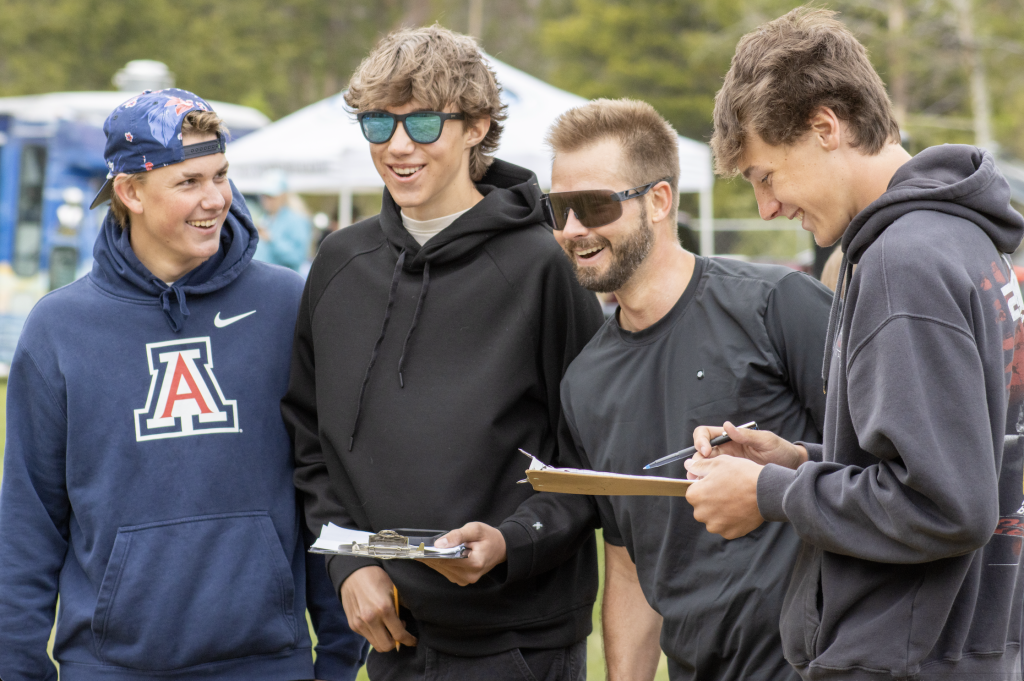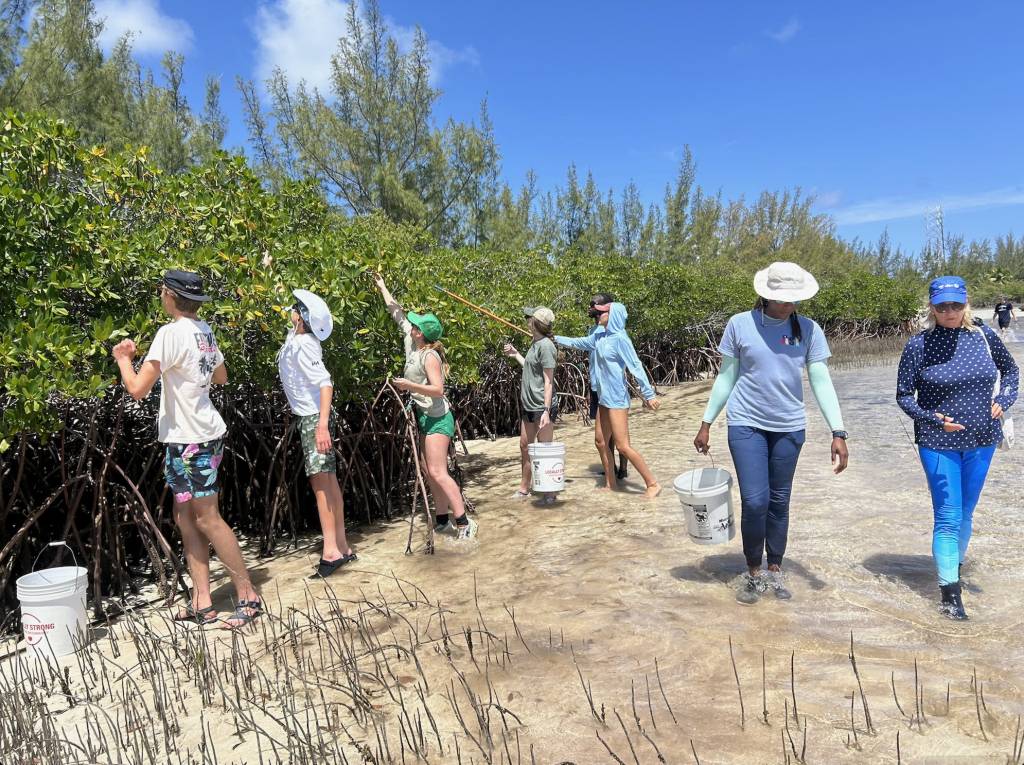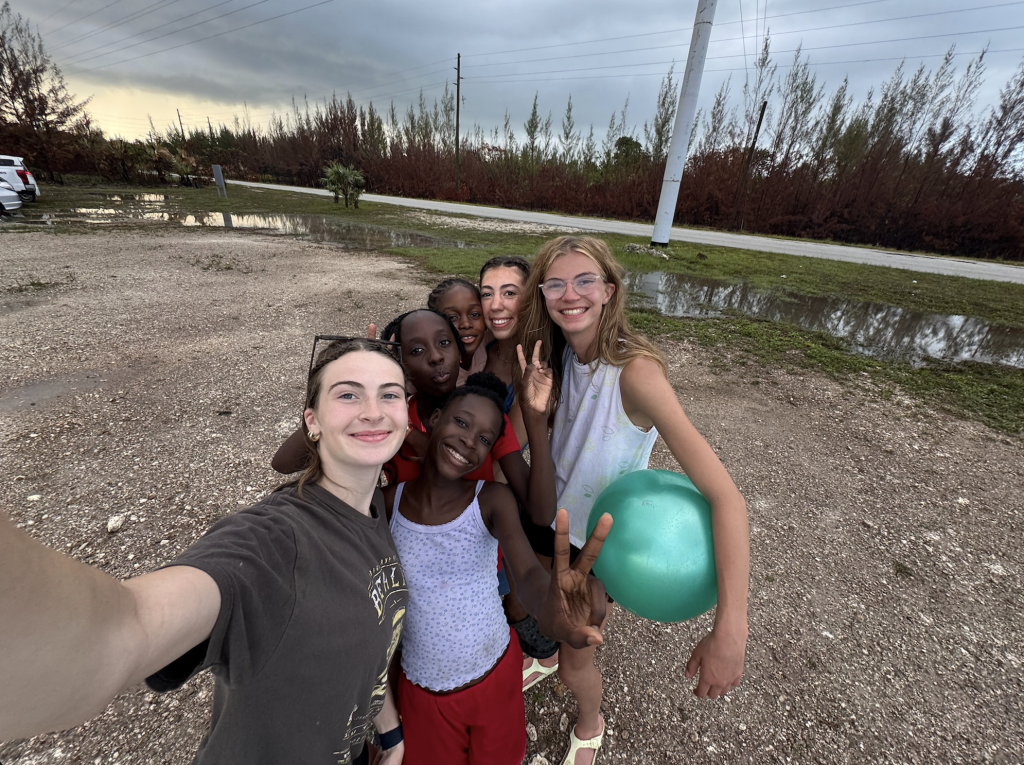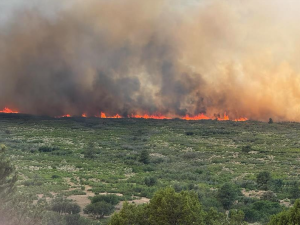Beloved local teacher starts independent school for deep learners
Nonprofit Vail Performance Academy teaches community service, studio-style classes to 20 high schoolers

Vail Performance Academy/Courtesy photo
A former Vail ߣ���� and Snowboard Academy teacher is starting a nonprofit microschool for high schoolers that offers a high-level, nontraditional educational program. Classes begin in September.
Ask a random collection of Vail ߣ���� and Snowboard Academy students which teacher is known for their support for students, creativity in the classroom and passion for deep learning, and they will likely come up with the same answer: Samuel Bennett.
“Mr. Bennett was the only teacher who welcomed the same creativity I brought to skiing into the classroom, encouraging us to think freely, explore ideas and see learning as a process of creation,” said Reagan Wallis, one of Bennett’s former students.
At the end of this school year, Bennett left his job teaching science at Vail ߣ���� and Snowboard Academy to start his own school.
Vail Performance Academy offers nontraditional, high-level academics
Vail Performance Academy is a nontraditional school for student athletes and students who want to delve more deeply in their learning. Based in Avon, the school will offer in-person and fully virtual learning for approximately 20 students in its first year.

Support Local Journalism
The school is best suited for both student athletes and for “students that want a nontraditional, rigorous critical thinking, problem-solving approach to learning,” Bennett said.
Bennett, who has been teaching high schoolers and college students for 20 years, decided to start the school after he received repeated requests from students and families for a different type of educational offering.
“One of the reasons that I decided to start my own school is because the students asked me to,” he said. “The students were upset with traditional public school — their closed-mindedness, narrow-mindedness, inflexibility, lack of access to high-quality instructors — and countless kids’ parents asked me if I’d be willing to start a school.”
“I absolutely love educating the youth — I’m a teacher and I absolutely love what I do,” Bennett added in an email to the Vail Daily. “Sadly though, I’ve grown increasingly concerned that traditional public education is failing both students and teachers. The narrow curriculum, testing demands, rigid grading systems and bureaucratic policies are stealing the students’ joy and passion for learning. These issues are also pushing out skilled educators.”

Classes at Vail Performance Academy are structured on a quarter system, and students can choose to learn during the summer and take a different quarter off from classes. This option is designed with winter athletes in mind, who typically see their busiest competition season from February to April.
“That’s when national championships are for many of the disciplines, and the kids need — want — to be able to focus on their athletics, not so much on their academics,” Bennett said. “Kids can take a summer course load and then forego taking courses in the winter during the competition season.”
“Another unique aspect of the school is that it has a schedule that allows them to train during the day,” Bennett continued.
Classes will adhere to the traditional 9 a.m. to 3 p.m. schedule in the fall and spring, but from November to late April or early May, students will only be in school from 1 p.m. to 5 p.m.
There will be three in-person teachers to lead the core academic requirements, which make up 60% of students’ workload. All courses will be supported by online instructors, as well, and every teacher will be certified.
Learning extends to community service, studio courses
The school encourages students to tackle real-world challenges in two ways, which, combined, make up the remaining 40% of students’ workload.
“A key outcome is that kids know how to solve real-world challenges, practice problem solving, practice critical thinking,” Bennett said. “Those real world challenges that we’ll be solving are, locally, hopefully food insecurity, and globally, access to education.”
The school has a strong service learning bent, with both monthly service work and a yearlong service project.
Bennett’s goal is for students to learn the importance of helping other people. “I think that a key aspect of being a good citizen, and a good human, is helping others,” he said. “I think that’s missing in schools.”
The yearlong project involves supporting a community of Haitian immigrants living in the Bahamas. “For the entire year, my students and I will be focused on developing an educational model to support those kids’ learning,” Bennett said. “We are going to build a school in the Bahamas with some local stakeholders.”

Students’ monthly service work will involve providing meals to community members in need.
“Another key aspect is community integration,” Bennett said.
Students will also connect with the community through taking three-week-long, studio-style courses led by mentors who are “industry experts,” Bennett said. “The kids might learn about 3D design architecture from a local expert and then put that learning, directly apply it, to building 3D models of homes or whatever they’ve developed.”
Bennett is still curating the list of mentors, but lessons will include videography, 3D design architecture and writing. Each course will culminate in a capstone that enables students to “directly apply the supplementary learning in a relevant and practical way,” he said.
“The ability to learn and then apply your learning directly at a high level, I just don’t think that’s offered (at other high schools),” Bennett said.
Bennett has already piloted the studio course model with former students. “They’ve been wildly successful,” he said.
“In end of year surveys that I’ve given former students asking them ‘what were the most impactful lessons?’ most of the time they would refer to these two-to-three-week studio courses that were offered outside of traditional curriculum,” Bennett said.
Vail Performance Academy is currently enrolling students for the 2025-26 school year. Classes begin September 8.
The school costs $26,000 per year to attend in-person, which includes a week-long service trip to the Bahamas, and $10,000 per year to attend virtually.
“I don’t want tuition to be a barrier,” Bennett said. “That’s why I also do significant fundraising so that I can offer scholarships so if a kid wants to come to the school they can come to the school.”
To find out more, visit .










